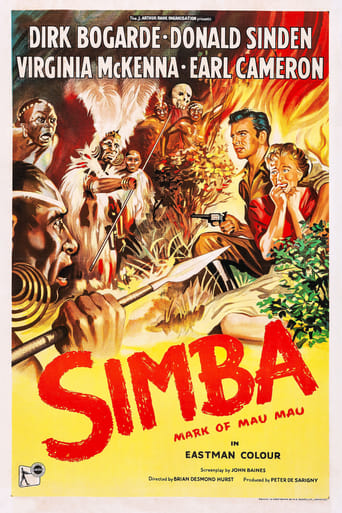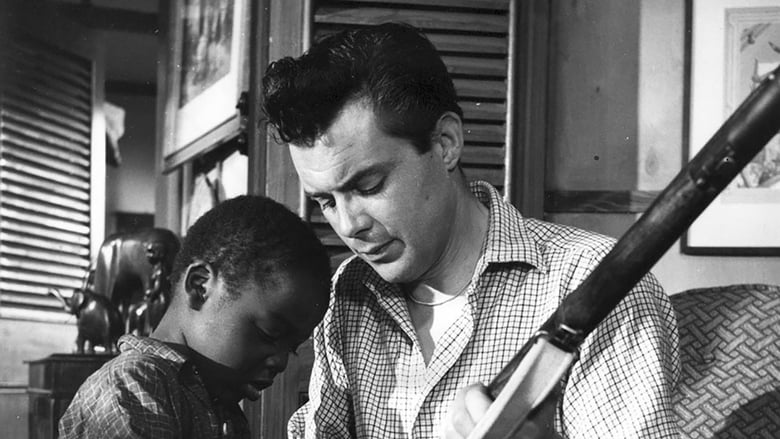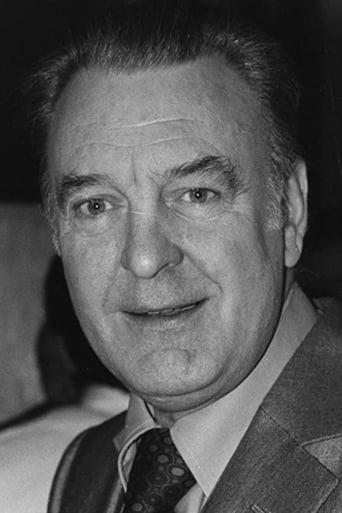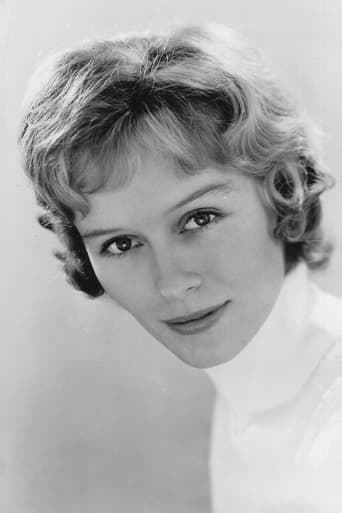Simba (1955)
A European family in East Africa finds itself caught up in an uprising by local black Africans against their white colonial masters. Based on the Mau-Mau rebellion in Kenya in the early 1950s.
Watch Trailer
Free Trial Channels
Cast


Reviews
just watch it!
This is one of the few movies I've ever seen where the whole audience broke into spontaneous, loud applause a third of the way in.
There's a more than satisfactory amount of boom-boom in the movie's trim running time.
A clunky actioner with a handful of cool moments.
Copyright 1955 by Group Film Productions Ltd. New York opening at the Palace: 21 October 1955. U.S. release through Lippert Pictures: 9 September 1955. U.K. release through General Film Distributors: March 1955. Australian release through British Empire Films: 21 September 1956 (sic). 101 minutes. (Available on a very good Spirit Entertainment DVD). SYNOPSIS: On arriving in Kenya, a British settler discovers that his brother has been murdered by Mau Mau terrorists. NOTES: One of the top ten British money-makers of 1955 in the U.K. COMMENT: Here's a movie that cries out for Rank's Independent Frame process work. Instead the makers have reverted to the cheaper, more obvious and somewhat primitive method of inter-cutting differently graded second unit footage peopled by obvious doubles with studio cut-ins against process screens and glaring photographic blow-ups. Hurst's clumsily heavy-handed direction, its lumbering pace emphasizing every cliché in the banal dialogue as well, further undermines the picture's credibility.Nonetheless, despite all these obtrusive defects of technique, as well as shallow writing and superficial acting (particularly by the three principals, although Sinden is partly exonerated by terrible miscasting), plus the fact that Miss McKenna's role has been built up by Mr. Estridge (she is forced to emote through two or three totally extraneous scenes, whilst others have been padded out way beyond their levels of interest and/or importance); — despite all these problems "Simba" still packs a mighty punch. It's a case of the powerful theme overcoming the triteness of its telling. And it must be admitted that Hurst does handle the horrifying action scenes forcefully, partly by the very unobtrusiveness, lack of involvement and even the clumsiness of his technique.Although some critics complained that Bogarde was being stereotyped in truculently unsympathetic parts, his public didn't seem to mind. He topped both Motion Picture Herald polls of British showmen for 1955, as the top picture-goer magnet among British stars, and as the top box-office star in the U.K. over all.
It pinpoints all the problems of colonialism, how it has to turn the natives against the intruding masters, while they have their defense as well - they do bring help and order to the country with education and cultivation, and if the natives react with violence they earn being called stupid.The most fascinating scenes are always with the natives, though, especially every scene with doctor Karanja (Earl Cameron) who is the backbone of humanity in the film, placed in a very sensitive position as working with the whites to help his own but disowned by his own father. The dramatic finale caps the solemn drama, and as in all real stories, that's where the real story begins, the last shot being of the one innocent person and foremost victim of the whole conflict.The initial scene sets the theme and the tension, which lasts throughout and is never really resolved, the conflict going on still today, as white farmers of South Africa and Zimbabwe are being murdered still today. Both Dirk Bogarde and Donald Sinden make rather poor figures of stolidity, and you never really see them come to some deeper senses. Virginia McKenna as always brightens up the arduous drama with her beauty and crowns the film with a sustained romance - at least that will continue after the film. I can't raise any objections against this film, which honestly gives such a full picture of the Mau-Mau situation as was possible and calls for important attention to the great social problems of Africa, which mainly consist of inherent and almost incurable superstition.
I don't intend to review the film in its entirety, but rather discuss its treatment of race relations. There is little doubt that it was transgressive by the standards of its time, and, also, it was incredibly raw and often offensive in terms of rank racism, but it was also refreshingly honest and unvarnished. We saw the ugliness for what it was on all sides. We saw the complication. We saw how truly decent people could hold a variety of view and then change them for the better. Most importantly,we saw humanity. I don't think we can achieve that by sanitizing and political correctness. I am grateful that this film is available for viewing and consideration. Just the notion of an accomplished black doctor standing up to a white man in such an astonishing way circa 1955 was amazing. We didn't see anything like it until Sydney Poitier uttered his famous line, "They call me Mr. Tibbs."
Dirk Bogarde, poorly regarded brother of a Kenyan farmer, comes to Kenya to find his brother killed by the savage Mau Mau group led by the mysterious SIMBA. Will he find true love, a sense of responsibility, and a proper regard with the indigenous people who are revolting against colonial rule? Though this a painfully sincere movie illustrating the hardships of being a white farmer in a countryside full of people who do not want white farmers, its hard not to be somewhat appalled by a movie that poses the question -- do the native Kenyans who were part of the Mau Mau deserve to be regarded as men, or simply as savages. While, fortunately, it does feel like the movie makers are making the case for thinking of the Kenyans as humans, it's a bit of a close issue, as the lead farmer is allowed to rant about savages, and the police commissioner trying desperately to keep order, seems to have ill-concealed contempt for the natives revolting against his authority.The acting is all good, and the direction keeps this particular plot moving. The opening sequence is shocking. The final sequence really is quite tense, and the way the filmmakers choose to end this film makes some rather unpleasant and unpalatable points quite well.The problem is this. Do you really want to see a movie made from the point of view of the earnest but colonialist occupiers? Are you willing to tolerate something that looks like the film the French in Battle of Algiers would have made, had they access to a camera and clipped British accents? If you aren't, don't watch. You really will get angry.But, if you want to see viewpoint of the English establishment just before colonialism was ended, this might be as good a place as any to find it.








